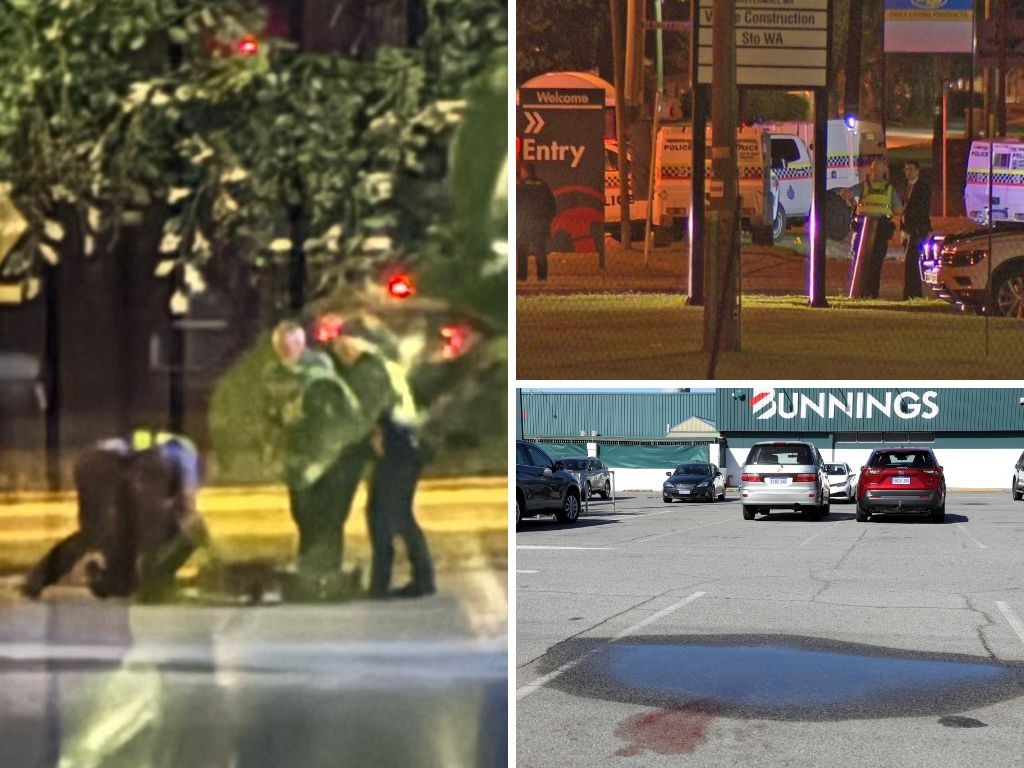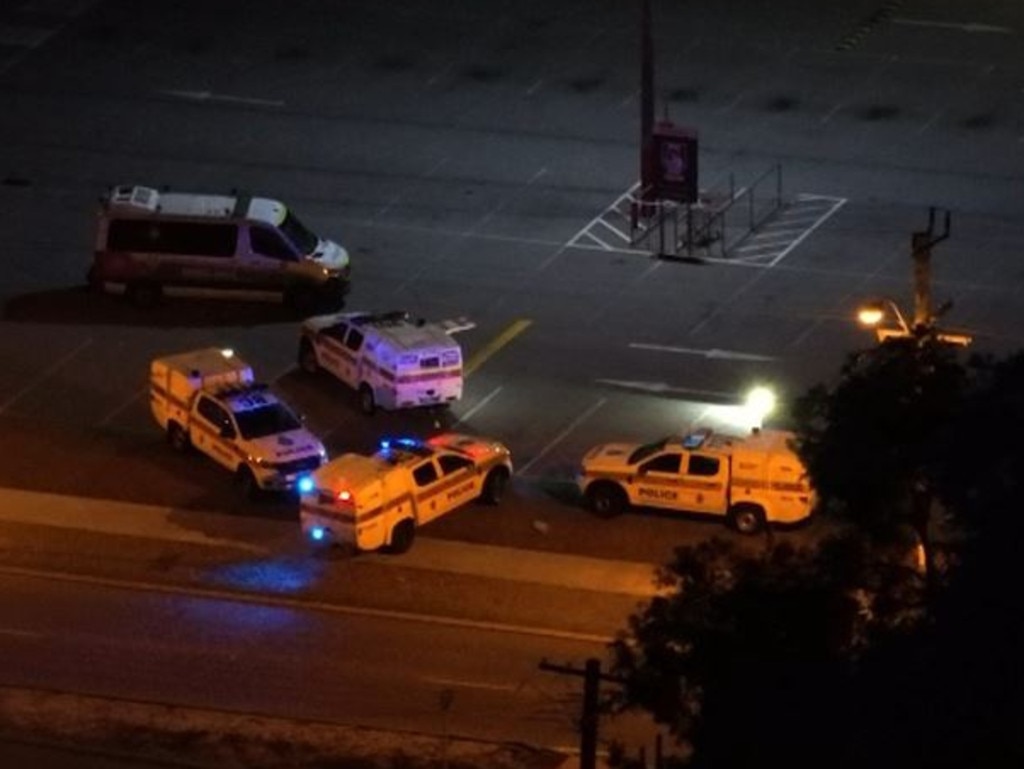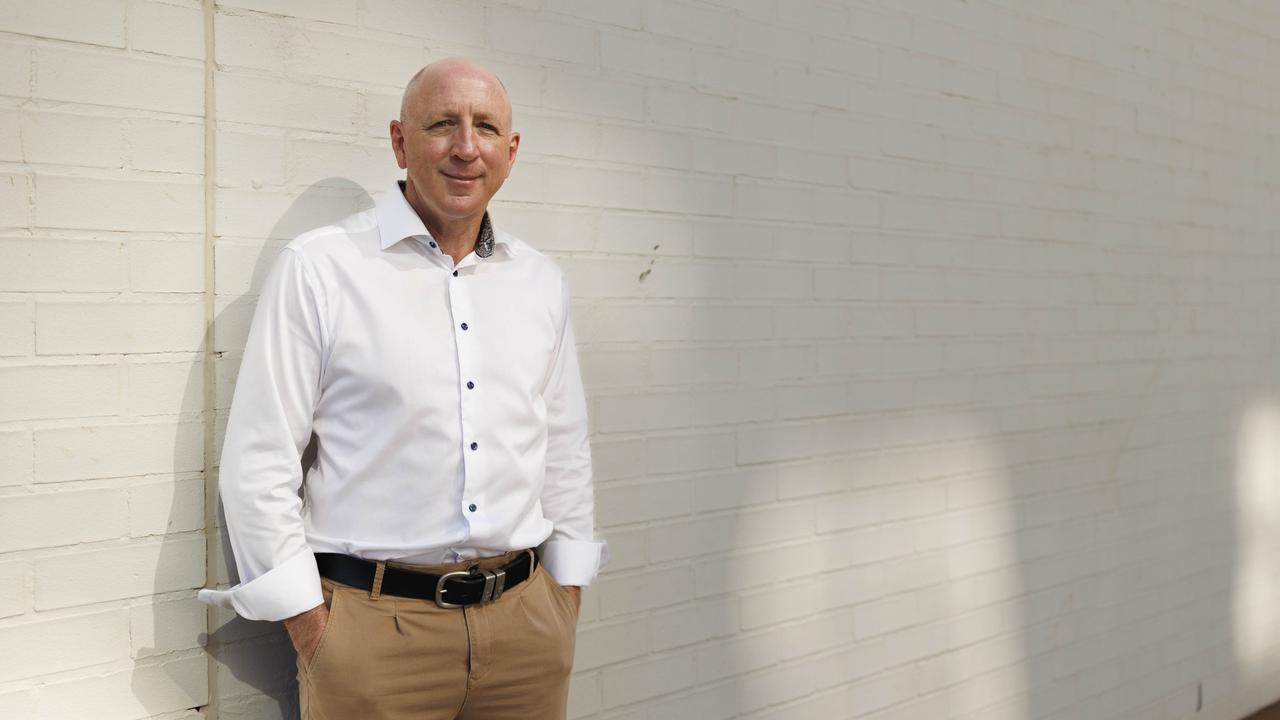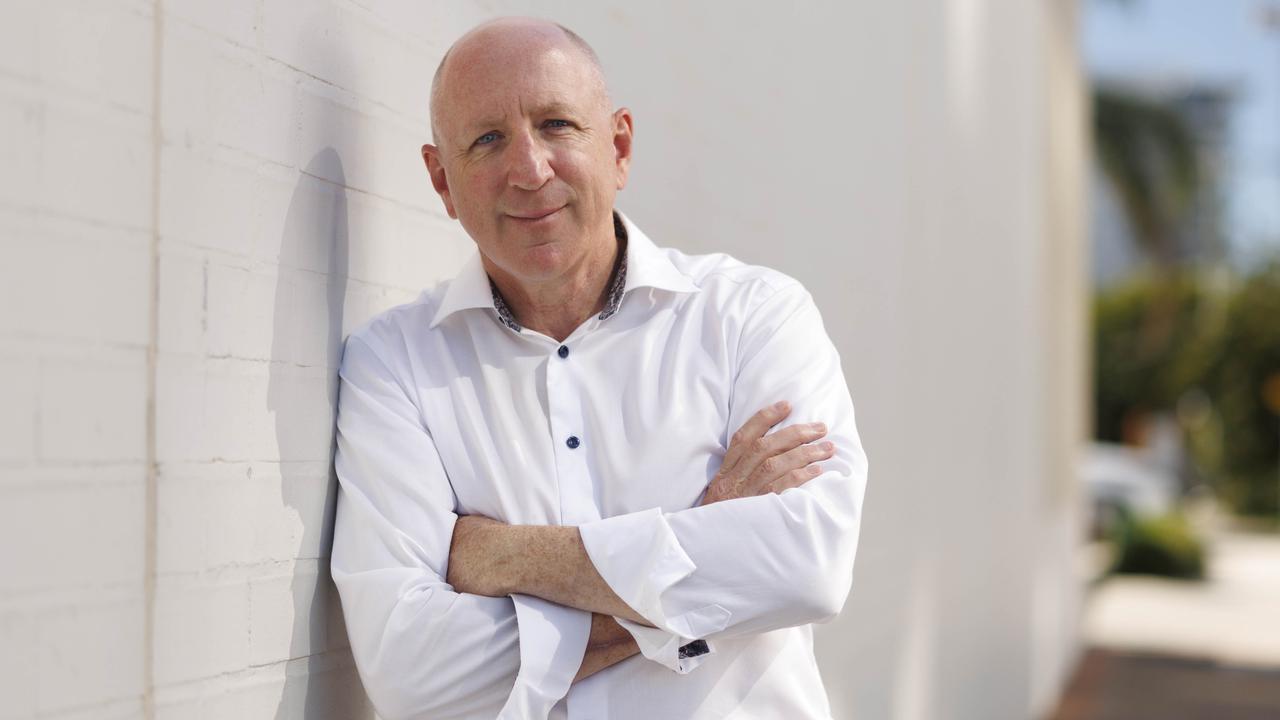Perth stabbing: Teen ‘so indoctrinated he was forced to use basic phone’
The 16-year-old shot dead by police on Saturday was deemed to have been so indoctrinated by online extremism that he was required to use a phone that could only text, WA premier reveals.
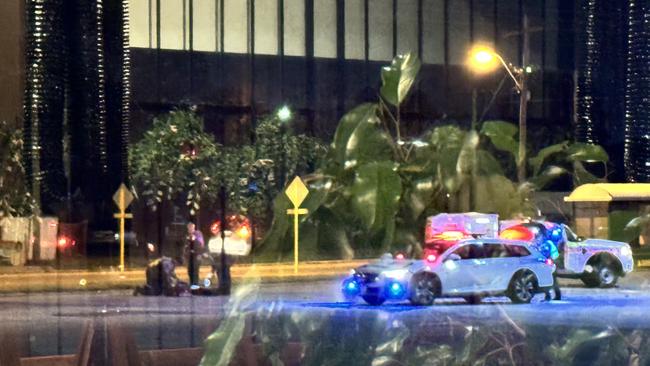
The 16-year-old shot dead by police on Saturday was deemed to have been so indoctrinated by online extremism that he was required to use a basic phone that could only text, West Australian premier Roger Cook has revealed.
The Perth teen chased one man with a knife and stabbed another in the back outside a gym on Saturday night before he turned on police and was killed with a single shot in a Bunnings carpark. On Monday, Mr Cook acknowledged the concerns of parents at Western Australia’s premier public school, Rossmoyne Senior High School, that a group of boys there had been radicalised and possibly trying to recruit others.
The Australian revealed on Sunday that parents at Rossmoyne took their concerns to a range of authorities. Earlier this year, their allegations were referred to Australian Federal Police.
“We can confirm that a letter was sent to the (West Australian) minister for education and as is appropriate the minister automatically referred that letter to the education department for action,” Mr Cook said.
“The education department obviously took that information on-board and continued to manage that.”
The Australian asked Mr Cook: “Are you aware if that is a live and ongoing problem because our information is that it was not just one boy that the parents were really concerned about?”
Mr Cook replied: “Look, I’ll leave that up to the education department to clarify. Obviously this young man was harbouring some extremist thoughts which is the reason why he was a part of the countering violent extremism program”:.
Mr Cook said the program said he was not aware if any other students at Rossmoyne were in the program.
“We are confident that this was a single act by a single person acting alone,” Mr Cook said.
“There is no further threat to the community.”
Mr Cook said the boy, described by police as a caucasian Australian with mental health issues who had been radicalised by extreme Islamic ideology, flagged his intention to do harm on Saturday night in a text message to friends. He did not post on social media because he was not able to do that since entering the extremism program two years ago.
Mr Cook said he did not know which online platforms radicalised the boy initially. Since entering the program, his online activity was strictly limited.
“As part of the countering violent extremism program the individual in question only had a very basic telephone,” Mr Cook said.
“So when he came into contact with the countering violent extremism program there is a range of measures and I think that includes limiting his access to online media and social media.
“This young gentleman confronting a range of complex issues in his life has taken on board extremist attitudes.
“And so that wss the issue that we have been managing for some time now.
And from that perspective, the complexities that he faced in his life put him in a situation where we had the incidents of the weekend.
“It is incredibly regrettable.
“But I just want to do two things – thank the police for their incredibly fast response and for making sure … that there was no further violence to other people in community and can I just express my deepest sympathy to the community and everyone impacted by this.
“And I just want to thank the members of the clergy who are responsible for working with this young gentleman, trying to get him on a better pathway but also working with authorities to make sure that they got as much notice as possible as he was experiencing and starting to carry out the extremist attitudes.”
Mr Cook spoke as students return to Rossmoyne Senior High School on Monday morning amid a sombre mood following the news of the boy’s death. Before he was shot, the boy had stabbed a stranger in the back and had sent a text message to friends and associates informing them that he “was going in the path of jihad tonight”.
One parent, Niranji Wickramasinghe, told reporters outside the school that the dead boy had been a friendly and helpful child. Ms Wickramasinghe has a daughter in year 11 - the same year the dead boy was in - and a son in year 9, and both of her children had interacted with the boy.
“He was a very kind-hearted and helpful child. My son who is in year nine said he was very friendly, he had helped them before. He’s a good child,” she said.
Ms Wickramasinghe said the boy was a good child who had underlying mental health issues and who had “gone mad” after watching videos online.
The boy was one of several students at the school who had converted to Islam in recent years. Multiple concerned parents at the school had expressed concerns about the group and their activities, having alerted the school, the education department, state and federal police and elected representatives over their fears about the cohort.
Ms Wickramasinghe said her children had believed that the boy’s threats were nothing more than a joke.
“Sometimes he would say ‘I’m going to bomb this bus’ and kids were laughing, they were thinking it was a joke,” she said.
Speaking through tears, she said she believed more could have been done to help the boy.
“We as a society should have saved his life. We didn’t do our jobs,” she said.
“I feel so sad, I cried all night, even our children cried all day yesterday. Police and school and friends, all of us could have done a better job than this. We could have saved his life.”
A message sent to students and parents of the school on Sunday acknowledged the boy’s death.
“Within the school, we will have support staff available to assist students, staff and parents,” the message said.
“We will continue to provide support over the coming days and weeks as needed.”

